Rethinking Copyright in the Age of Generative AI
Striking a balance between incentives and innovation
Or how to build the future that should happen
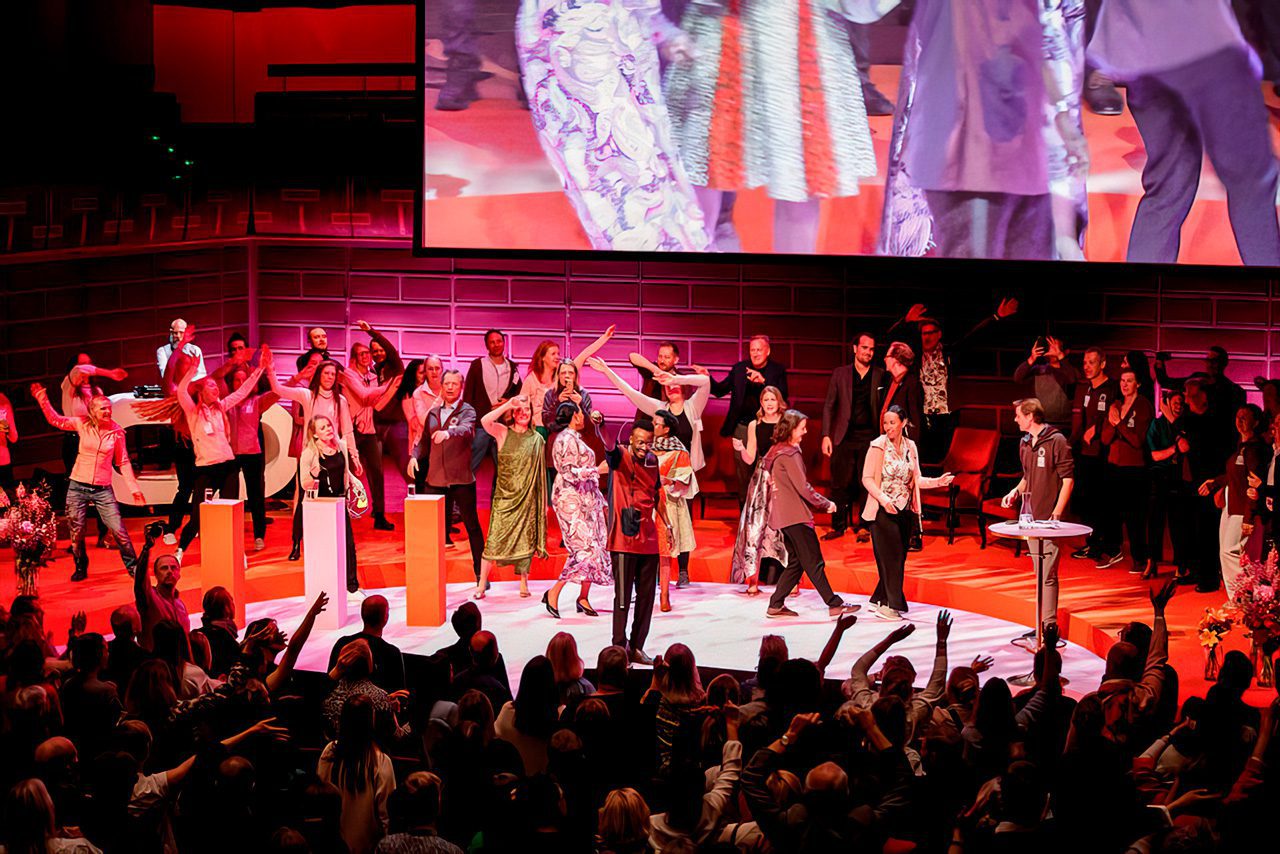
Image Courtesy of IDG
“The planetary crisis is, at its core, a professional crisis,” explains American futurist Alex Steffen. “The big decisions—the ones that make our world more (or less) sustainable, that prepare us for the coming disasters (or leave us brittle and vulnerable), that ready our institutions and communities for unprecedented transformations (or that harden institutions into resistance to change)—are almost all made by people whose job it is to make them.”
Trust in these people, these institutions, in the resilience of democracy, is seemingly at an all-time low. For whose benefit are policies being developed? On whose behalf and on whose timeline? What human qualifications are required for the job of salvaging a burning planet?
As it turns out, most leaders (elected or not) seem unhurried. As common moral and societal reference points are erased, we find ourselves alone — bereft, disoriented, as if suddenly blind to our true nature. Care is weakness, we’re told. Nuance is woke. And Orwell’s doublethink, in its current tech-enhanced formula, is a permanent feature of our lives.
Even in this tumult, inner development as a tool for grounding ourselves, a buoy we can all reach, is largely dismissed, or distilled into tidy #mondaymotivation quotes to be stumbled upon on the occasional doom-scrolling day of introspection.
Denial has become our soma.
And yet we have long known that, in their greatest incarnations, families, communities, businesses, are all networks that catalyze our humanity — in all of its complexities and banalities — towards a shared purpose. Isn’t this what the world needs more of?
Enter the IDGs.
Even in this tumult, inner development as a tool for grounding ourselves, a buoy we can all reach, is largely dismissed, or distilled into tidy #mondaymotivation quotes.
Born in 2019 from the scholarly field of adult development, what is now known as the Inner Development Goals (IDGs) was imagined as a response to the slow progress towards the 17 UN Sustainable Development Goals (SDGs). See above for why this was (is) needed.
The not-for-profit, open-source initiative describes itself as “first and foremost a communications project” on a mission to “make some of the rich existing knowledge about human cognitive and emotional development available in an accessible language that resonates widely with people and organizations in the 21st century.”
In 2021, two online surveys asked: “What abilities, qualities or skills do you believe are essential to develop, individually and collectively, in order to get us significantly closer to fulfilling the UN SDGs?” Answers gleaned from 1,000 respondents and consultation with 1,000+ advisors and 23 support organizations from around the world facilitated further refinement.
The resulting framework consists of 5 dimensions, and 23 evolving skills and qualities and shouldn’t be misconstrued as a tick-the-boxes certification but rather as a foundation for collective inquiry.

With this notion of inquiry in mind, the second Inner Development Goals Summit took place on 11 and 12 October 2023 in a hybrid format with an estimated 1,500 people attending in Stockholm and 7,000+ online. Cirkus, the performance venue which housed the first day, allowed for distinct gathering spaces echoing each of the 5 dimensions: being, thinking, relating, collaborating, and acting.
On the main stage, as speakers were treading a careful line between stark tell-it-like-it-is stats and soaring we’re-in-it-together stories about the (dire) state of the world, it felt at times as though they were simply making room for hope.
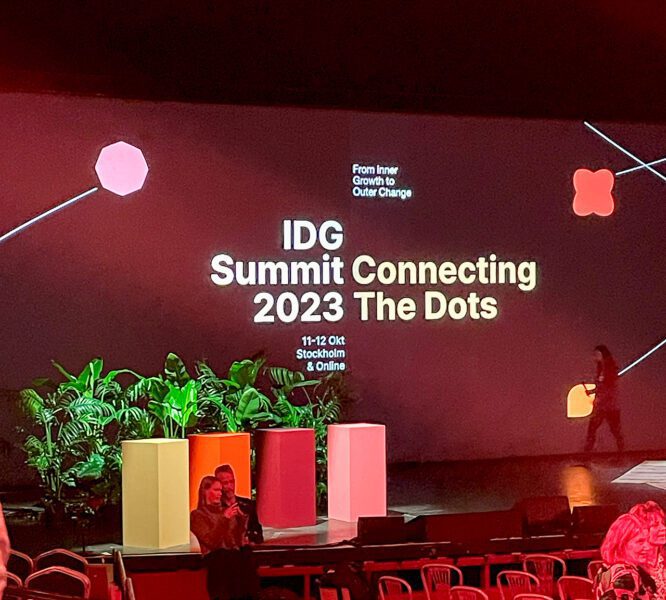
Central to the IDGs is the explicit belief that we are not broken. That we have within us the attributes needed to tend differently to the living systems we are entangled with. In the absence of leadership on pressing issues, the expression of that belief is a rudder to hold on to.
And beyond that foundational belief, is practice.
Throughout the first day, artists performed commissioned works to frame each dimension and usher in the next line-up of speakers. From Indy Johar on the call to leadership, to Phoebe Tickell on moral imagination, to Caroline Casey on vulnerability and the imperative of all-or-nothing disability inclusion, each speaker offered their expertise and, crucially, their lived experience as grounding for each theme.
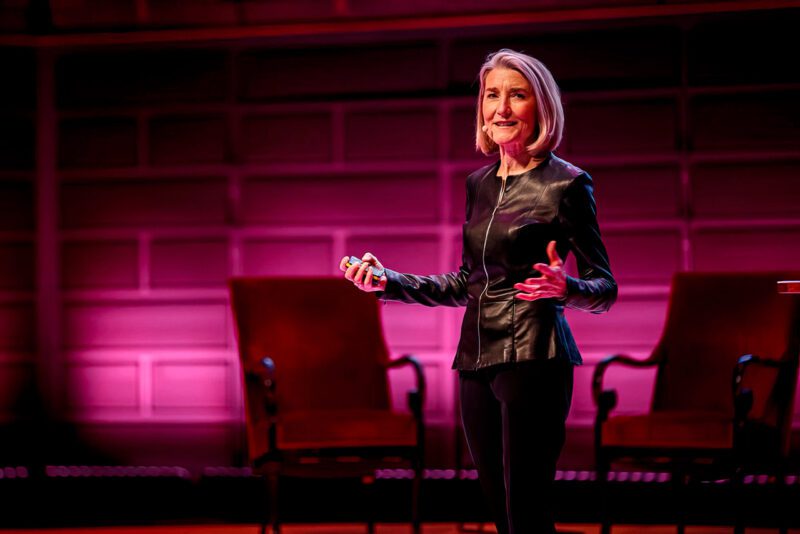
Image courtesy of IDG
“It’s about making the human experience of transformation an object of design. (…) We are really struggling to imagine what it means to live sustainably in a way that is beneficial, aspirational, fun, enjoyable, playful.” explained Kirsten Dunlop about the deep learning journey underpinning the EU-led efforts of 112 cities committed to net zero by 2023.
How to design transformation? Slowly. By trying things out. By making visible our inner workings.
Could we learn by doing as well as by feeling?
In a panel on the corporate deployment of the IDGs, Jenny Djalma, Talent and Development Manager at IKEA, shared her insights: “At first we thought: ‘Hmm, it sounds a little bit fluffy, what is it?’ But when we kept going we could see that it is very connected to where we are as a company. (…) There’s a direct link to the SDGs. When we started it was the usual suspects from the area I represent or sustainability, but now we can see that it’s getting out to the broader organization.”
As these experiences were recounted, the summit audience oscillated between the intellectual exercise of listening to understand and the physicality of interactive interludes of music, of spoken word poetry, of being one with the crowd. Could we learn by doing as well as by feeling?
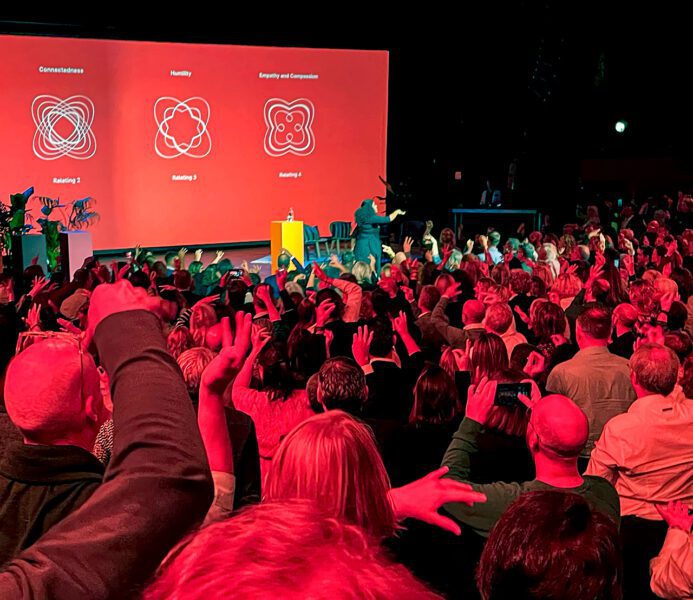
As a counterpoint to the big stage experience of day 1, day 2 offered facilitated tracks taking place in more intimate venues such as the Fotografiska Museum and Epicentre, a central co-working space. In these gatherings, we tested what it means to bring our entire selves to exchanges with peers.
We were engaged if not overly diverse. The need for greater BIPOC and Global South involvement, intentional engagement of young people, broader dissemination of existing use cases, and further inclusion of academic institutions were identified at the summit as threads to focus on as the movement develops and the ambition for reach and impact across borders is further realized.
A new survey is open with the goal of attracting 100,000 respondents in 100 countries. There are currently 470 IDG hubs in over 80 countries. Each is comprised of a minimum of 3 people, meets regularly, and is focussed on amplifying the goals. Rike Pätzold, Managing Director at the Institut für praktische Emergenz and convener for the IDG Munich hub explains why she got involved:
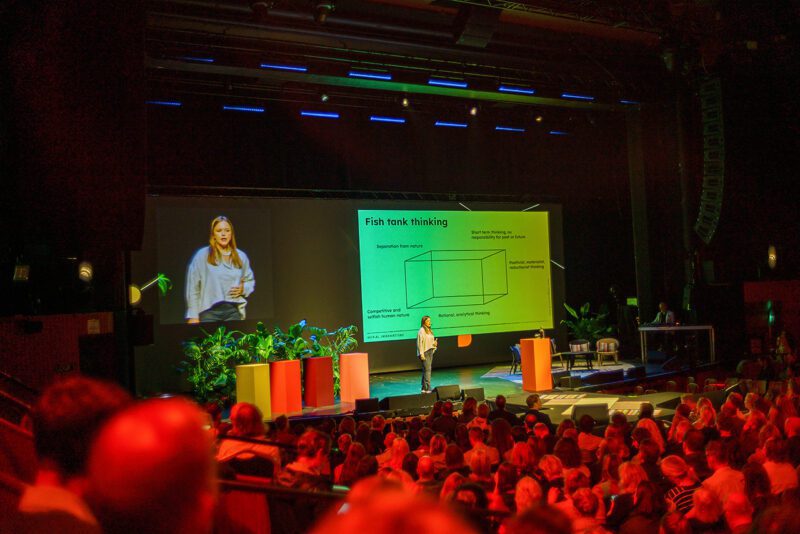
Phoebe Tickell at the Inner Development Goals (IDG) Summit 2023.
“We are in these bubbles. There’s the donut economy, there are sustainability people, there are organizational development people, and they live in their own spaces and have different vocabularies. We’re trying to be a kind of connector. This is where we find the IDGs very helpful: to help find that common ground.”
One step beyond that common ground lives the moral imagination Phoebe Tickell speaks of, which can free us from the proverbial fish tank of our minds and lead us to different futures. In these daring rambles, we might no longer define ourselves in opposition to others. We might look beyond the binary of expert knowledge towards a vivid kaleidoscope of emotion and experimentation — and finally have the audacity to harness our collective visions and prevent the past from colonizing the future.
On the impact the IDGs have had within IKEA, Jenny teared up on stage, as she recalled a recent team check-in where she asked the group how they imagined themselves in 5 years.
“‘I will work here, and I will do this, and I will have that,’ and so on. Then we came to the last person, he’s 25ish, and he said: ‘I can’t. I can’t picture myself in 5 years, because I have grown up with so many wars, and the climate crisis. I just can’t imagine it . . . ’ And I thought: ‘No, this is not how it’s going to be. And I think with those skills, he — and everyone else — could picture it.’”
Related Content
Comments
Deep Dives
RECENT
Editor's Picks
Webinars
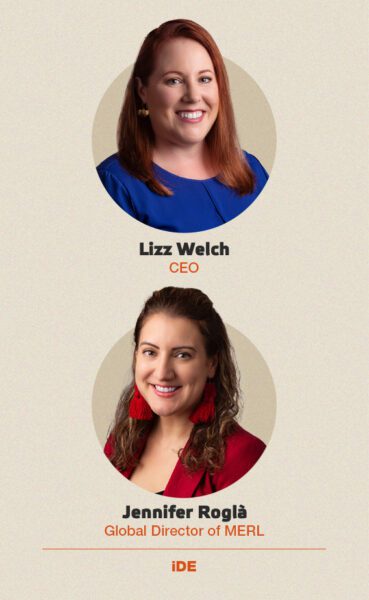
Featuring
Lizz Welch & Jennifer Roglà
iDE
May 16 - 12:00 PM EST
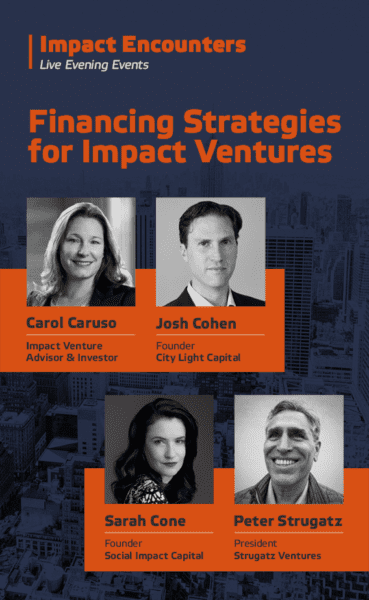
Impact Encounters
May 22 - 6:30 PM EST
News & Events
Subscribe to our newsletter to receive updates about new Magazine content and upcoming webinars, deep dives, and events.
Become a Premium Member to access the full library of webinars and deep dives, exclusive membership portal, member directory, message board, and curated live chats.
0 Comments